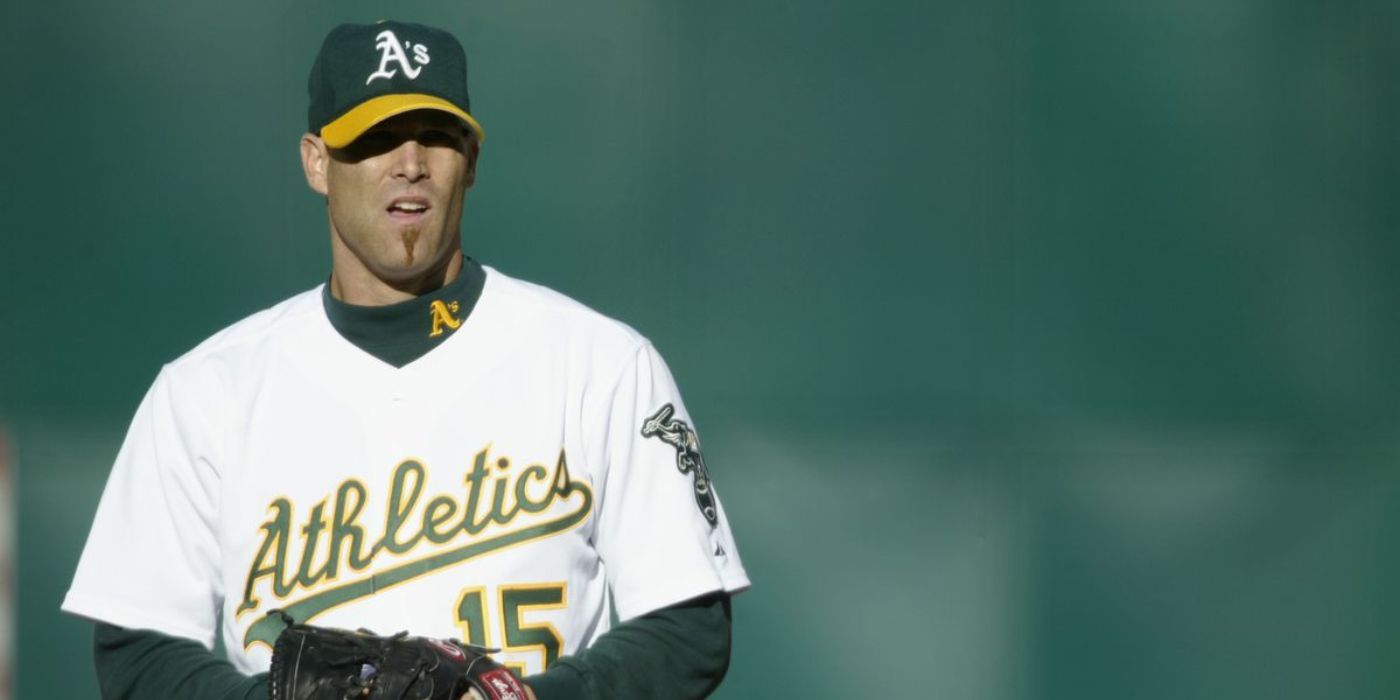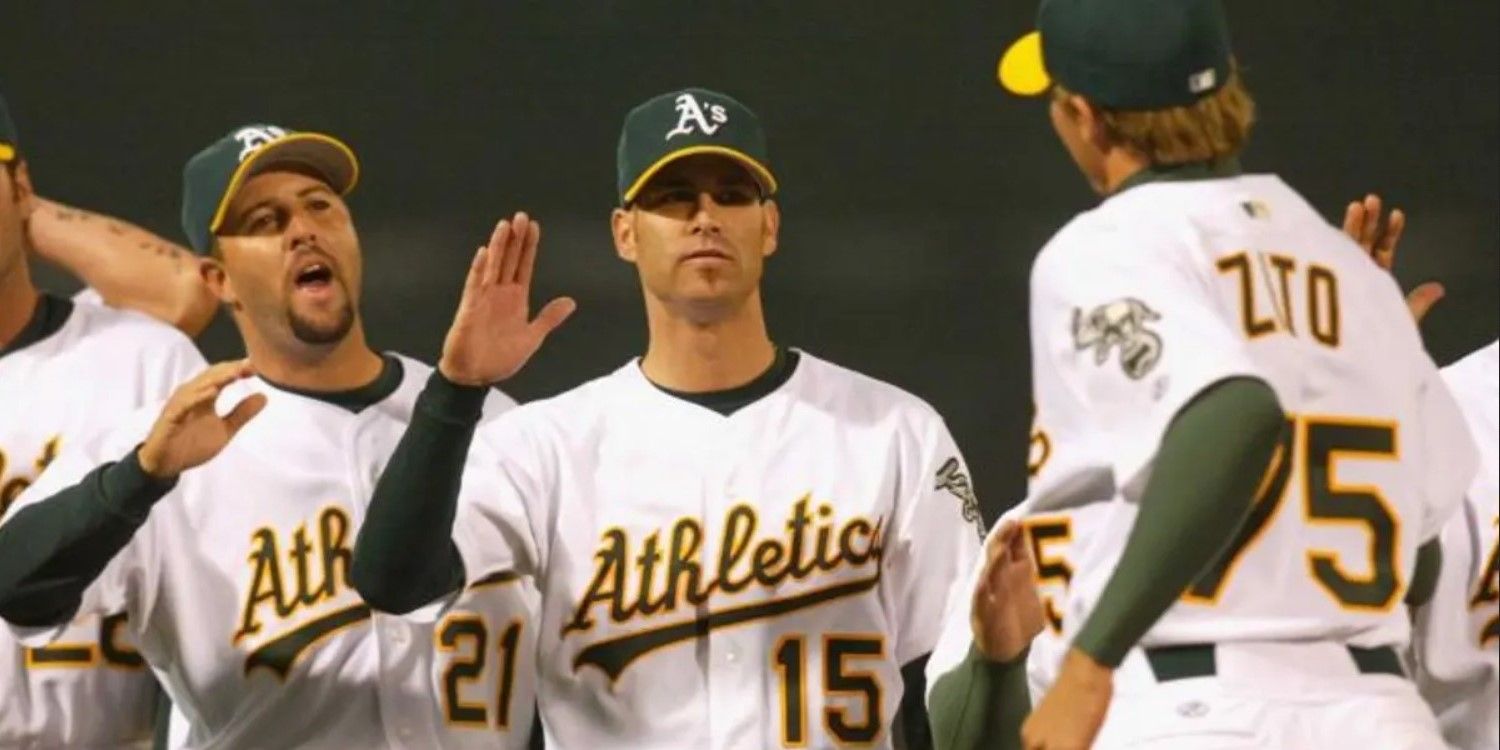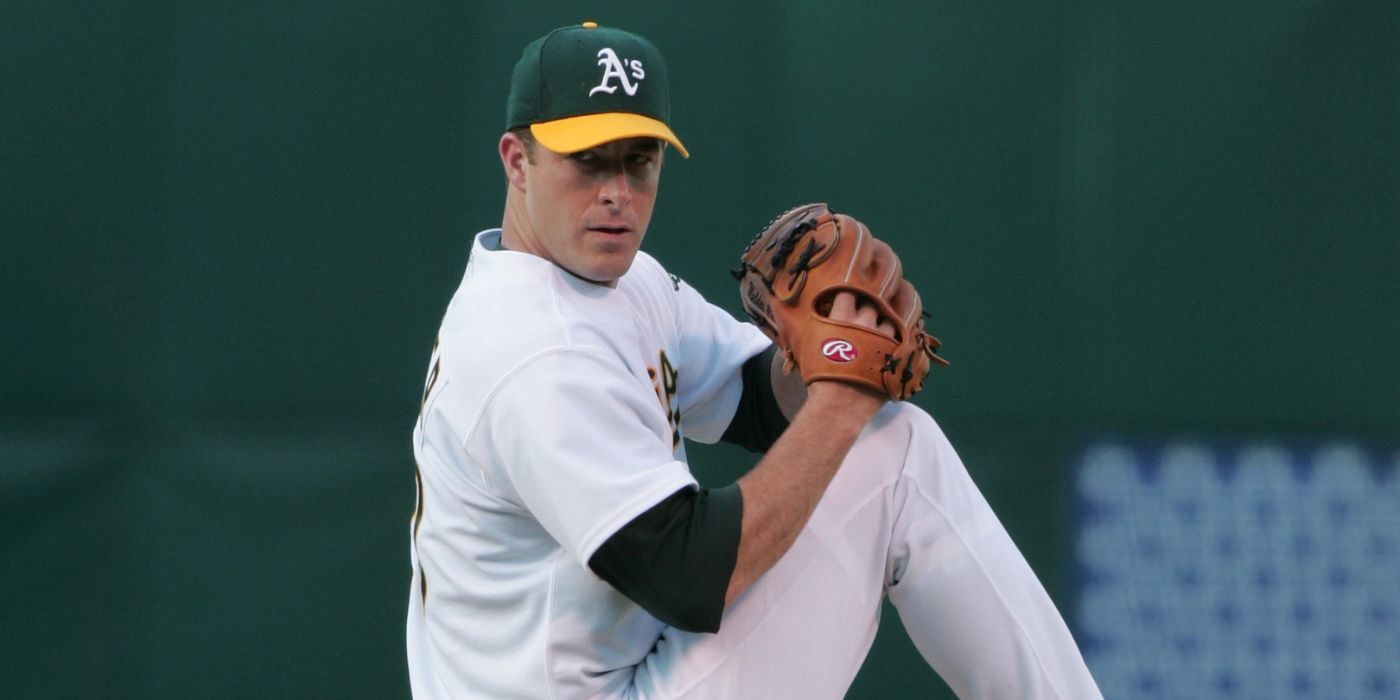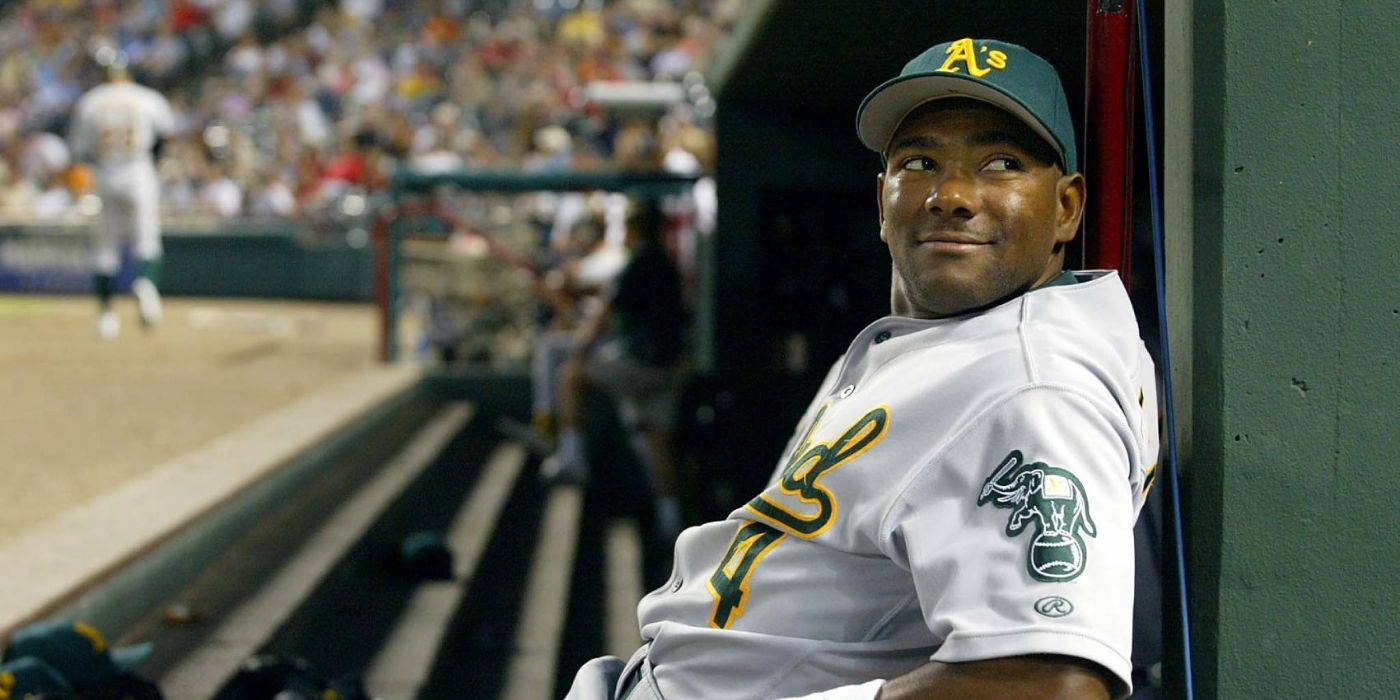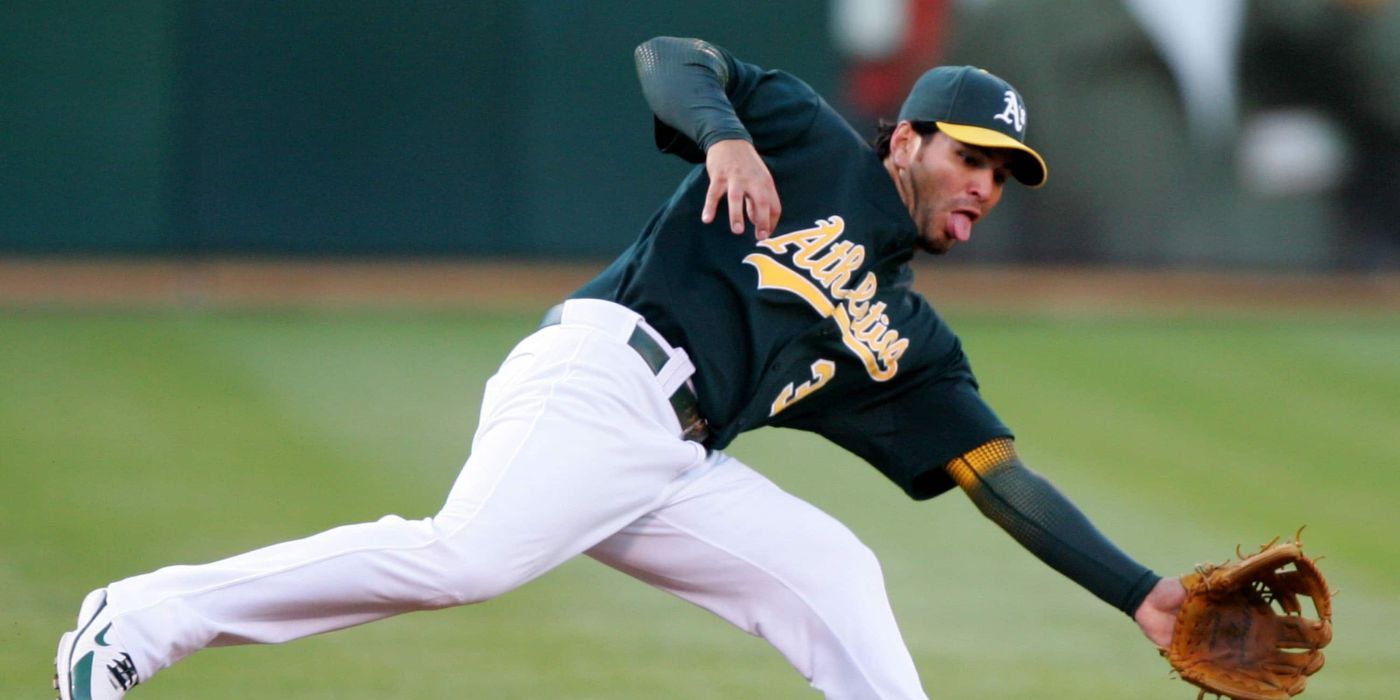
Moneyball is a terrific and unique sports movie based on a true story of major league baseball, but some key figures from the actual events are left out. Brad Pitt stars as Billy Beane, the general manager of the Oakland Athletics between 1997 and 2015, who was celebrated for his groundbreaking approach to baseball team management. Moneyball Tells the story of Beane's ingenious use of sports analytics to redefine how baseball teams fill out their rostersMixing elements of underdog sports movies with high-octane dialogue from acclaimed screenwriter Aaron Sorkin.
The true story of Moneyball is that the Athletics found themselves at a disadvantage compared to larger franchises like the New York Yankees and Boston Red Sox, where the big city market makes the teams inherently more appealing to star players. thinking outside the box, Billy Beane incorporated new ideas for the 2002 baseball season and managed to send the underdog Athletics on a massive 20-game winning streak With the help of players like Scott Hatteberg (Chris Pratt) and David Justice (Stephen Bishop).
While Moneyball Focuses mainly on true events, some elements of the real story are omitted to support Billy Beane's story. The film emphasizes the genius of his actions and ability to recognize talent, thus leaving several characters and truths that conflict with the shortcut. For example, the antagonistic relationships Beane had with the coaching staff and scouting department were not as strong in real life, and The athletics also has several players who Wasn't Written by the Moneyball System And were left out of the movie.
6
Tim Hudson
Tim Hudson was part of Oakland's "Big Three"
Tim Hudson was drafted by the Oakland Athletics in 1997 and pitched for the team for six seasons of his 17-year career, beginning in 1999. This included the 2002 season, where he started 34 games for the team with a 15-9 win / loss ratio. 2002 was not Hudson's best year for the Athletics, as he was an All-Star in 2000 and 2004, but he still had a solid win/loss ratio and an excellent 2.98 ERA. To simplify for non-baseball stat fanatics, Tim Hudson had a great year, but he wasn't part of Billy Beane's process for the team.
Related
Hudson was over from the previous management style and was not part of Beane's prerogative in the film. as mentioned, Moneyball Is at his best when it seems like Billy Beane is working miracles to assemble his roster of rag-tag, misplaced players. While this was undoubtedly a component of the Athletics' success in 2002, it would not be fair to say that they were not without their star players, as Tim Hudson was known as a very solid, consistently good pitcher throughout his long MLB career.
5
Barry Zito
Zito was a Cy Young Award-winning pitcher
Barry Zito is perhaps the most terrible player to be mentioned in MoneyballAs he was one of the best players in the Oakland Athletics during the 2002 season. In 2002, Barry Zito was awarded an All-Star Game appearance and even won the Cy Young AwardHonoring him as the best pitcher in the American League that year. Not only that, but Barry Zito was 13th in voting for the MVP award, with the likes of legendary players like Ichiro Suzuki and Alex Rodriguez in the American League.
Barry Zito's accomplishments in the 2002 season cannot be understated, but it speaks to history. Moneyball Was trying to say that he was left out of the film. Focusing on players like Scott Hatteberg has given Moneyball Its strong underdog feel, which is generally the crucial ingredient for a fantastic sports film. Including a player like Barry Zito would imply that the Athletics are better off than the film wants them to seemWith the introduction of the movie about their loss of Jason Giambi and Johnny Damon.
4
Mark Mulder
Mulder was another star pitcher on the Athletics
Mark Mulder's disposal of the Moneyball Film is very similar to Tim Hudson's. Mulder was a rising star pitcher in the Athletics during the 2002 season, playing 30 games with a 19-7 win/loss record. For this reason, it is difficult to tell the story of this MLB season without his consideration, and he managed to be an All-Star for the two subsequent seasons. at age 24, Mulder was considered part of Oakland's "Big Three," A prominent pitching rotation that included him, Tim Hudson, and Barry Zito, making them one of the most feared teams in the league.
The purpose of the Moneyball The line-up is to pick players who "Get on base", which becomes the fast, catchy way to simplify the advanced complexities of sabermetrics
The reason Mulder was left is primarily due to the film's focus on baseball offense. The purpose of the Moneyball The line-up is to pick players who "Get on base," which becomes the quick, catchy way of simplifying the advanced complexities of sabermetrics or sports analytics. So, focusing on players like Hatteberg and Jeremy Giambi allows the film to prove that it doesn't take a Hall of Fame batter to get on base by letting The impact of the pitching, however, makes it seem like the batters were much more effective than they were in reality.
3
Miguel Tejada
Tejada was the American League MVP in 2002
While Moneyball Excluding the team's prominent pitchers, it also fails to mention the two best offensive players on the team. Most notably, Miguel Tejada was an All-Star third baseman for the Oakland Athletics and The winner of the 2002 season's American League MVP Award. Tejada was not only the best player on the team, but he was one of the best players in Major League Baseball that year. Although Alex Rodriguez was credited for much better stats on the season, Tejada was given the incredibly prestigious award for leading the Athletics to the playoffs.
Ignoring Miguel Tejada for the Moneyball This film is quite shocking, because he had a much more significant impact on their success than any of the spotlight players, but has nothing to do with Billy Beane's system. This is not to say that Billy Beane's work was not effective, because the Athletics would not have the potential that they do without being able to supplement their roster with affordable players, but there are still team heroes of the year that were. Not included as characters. Given Tejada's star role on the team, he could have been valuable as an employee leader in the film.
2
Eric Chávez
Chávez was an elite MLB player
With Eric Chávez also left of the film, Moneyball Essentially ignores the five best players from the Oakland Athletics in the 2002 season. When you consider how much impact these five stars had on the year, it's a drastic shift in the movie's narrative to leave them all out. Eric Chávez wasn't an All-Star in 2002, but he finished 14th in MVP voting and put up an impressive 34 home runs and 109 RBI, contributing a notable presence to the team's 103 wins. Again, this simply ties in Moneyball's Aim to focus on his underdog characters.
Related
Chávez's most outstanding achievement was winning the Gold Glove Award six years in a row, including 2002. The awards are given annually to each position on the field for their achievements on the defensive end of baseball. Although this can also relate to the aforementioned statement about Moneyball's Focus on the offensive efforts, only including Chávez as an extra background when he was one of the two best offensive players in the team can only be explained by his lack of importance to the central premise of the film.
1
Paul DePodesta
Jonah Hill's Peter Brand is an inaccurate depiction of DePodesta
To clarify, Paul DePodesta is Sort of A character in Moneyball. Peter Brand, played by Jonah Hill, is a fictional character made to serve as a vessel for the concept of sports analytics, and there are reasons for his functionalization that fits the needs of the film. But it is important to do this He is loosely based on a real person named Paul DePodesta, who has a different connection to the team and is not very similar in personality. Peter Brand is introduced in the film as a socially awkward genius who is ahead of the curve in a major professional sports venture.
Brand fulfills the archetypal movie nerd role, simplifying his character to make him seem like a gem in the ordinary for Beane to find the value in
In the film, Brand is working for Cleveland's professional baseball team when Billy Beane discovers him and offers him a job. Brand fulfills the archetypal movie "nerd" role, simplifying his character to make him seem like a gem in the ordinary for Beane to find value in. Moneyball Plays in the underdog elements of the film. He's mostly there to make Brad Pitt's character seem like a bigger risk-taker, because Brand's clear contrasts in demeanor to the other athletics scouts/staff members, who have more baseball experience.
In real life, Paul DePodesta was far from a timid, unathletic man. He was a confident Harvard graduate who played football and baseball for the school. The most important difference is that DePodesta has actually been with the Oakland Athletics since 1999 and is not someone Billy Beane has discovered. Their relationship was much more of a mutual, collaborative effort than what is depicted in MoneyballWhere the film tries to give them a big brother, little brother connection.
While Paul DePodesta's appearance is highly inaccurate, the movie nails the essence of his and Beane's mission with the team. Their goals with the Oakland Athletics are to use data and analytics to build a successful baseball team. Huge player expenditures were not available to the Athletics as they might have been for a Los Angeles or New York-based team, and Moneyball Demonstrates how they compensated with intelligence and originality.
Based on the book by Michael Lewis, Moneyball chronicles the Oakland A's general manager Billy Beane as he tries to assemble a baseball team on a tight budget - by using computer-generated analysis to acquire new players. Billy partners with a young and hungry economist, played by Jonah Hill, as they develop an unconventional team of players that will change the game of baseball forever.
- Director
-
Bennett Miller
- Release date
-
September 23, 2011
- runtime
-
133 minutes
